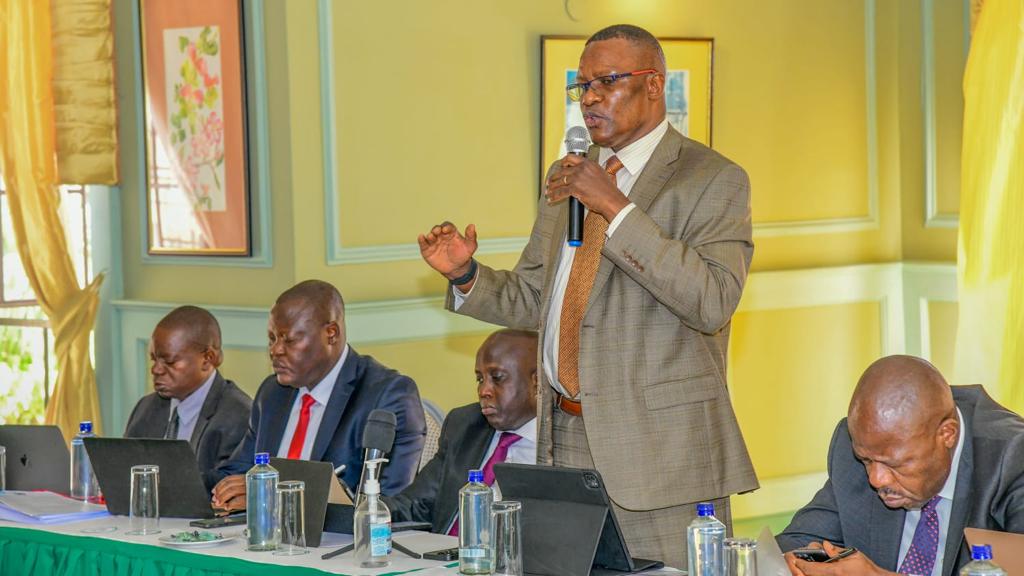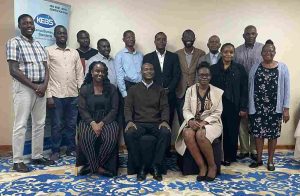By John Walubengo
The Kenya Kwanza Manifesto aka ‘The Plan, ’ states on information and communications technology (ICTs) as follows:
[Provide] Universal broadband availability throughout the country within five years. We shall increase and fast-track broadband connectivity across the country by construction of 100,000km of national fibre optic connectivity network.
A hundred thousand kilometres of national fibre is an easy-to-measure target focusing on ICT infrastructure. No wonder it keeps hogging all the limelight each time ICT ministry officials talk about matters of ICT.
However, other equally important ICT targets mentioned in the manifesto never get their fair share of attention. Such as:
Enhance government service delivery through digitisation and automation of all government critical processes and make available 80 per cent of government services online.
Or
Establish Africa Regional Hub and promote development of software for export.
These other ICT targets tend to be less talked about, perhaps because they are harder to quantify and explain to ‘Wanjiku’. If you speak to ‘Wanjiku’ about a cable that will bring the internet closer home, she can relate more quickly than saying, ‘we shall be exporting software’.
Infrastructure vs Info-Structure
And yet this ‘Info’-structure, as opposed to the ‘Infra’-structure, is where the real transformative nature of the digital or data economy lies.
Infrastructure is fine and necessary, but of what use is it if it only extends the global reach of big tech companies into new virgin markets in developing countries – considering their increasingly saturated and stagnant domestic markets?
Adding 100,000Km of fibre without investing in how Kenyans would participate effectively in the digital economy is doing precisely that – deepening the global reach of big tech companies beyond their current influence in Kenyan urban centres and into the rural areas.
Kenya must begin to have more conversations about how to participate effectively in the digital economy at the highest level of the value chain instead of remaining as consumers at the bottom of the digital value chain, as it were.
We must stop providing free ‘eyeballs’ to big tech companies that monetise our attention to the highest advertisement bidders while leaving us with nothing more than wasted hours of watching viral videos on social media platforms.
Moving beyond the bottom of the digital value chain
Rolling out ICT infrastructure is good and necessary, but it only places us at the bottom of the digital value chain. We now must work our way up the digital value chain. We must start building digital platforms to scale up and export to global markets.
We need to play at the higher levels of the digital economy and begin to monetise other peoples ‘ eyeballs’ for a change.
Indeed we have a few Kenyan platforms like M-PESA, PesaPal, and Cellulant, amongst others trying to do this. However, these are individual efforts with little or no government support to reach the export markets.
That’s why the statement ‘Establish Africa Regional Hub and promote development of software for export’ is perhaps the most critical statement in the Kenya Kwanza Manifesto – and yet seems to get the least attention, both within and outside government.
This statement requires more backroom work, with less instant and visible results than rolling out fibre cable. Building internal capacity to export software on the national scale that India does takes a lot more years of effort – often beyond the short-term, 5yr timespan that most politicians work with.
Let us hope that the Information and Communication Technology (ICT) Cabinet Secretary Eliud Owalo and his team will at least plant the seeds for such a grand vision, even though the corresponding impact and results will most likely become a reality when they have long gone and left their offices.
___________________________________________________________________
John Walubengo is an ICT Lecturer and Consultant. @jwalu.
![]()




